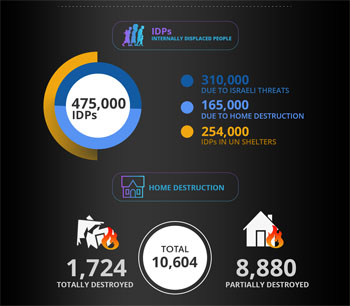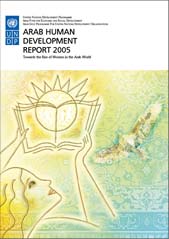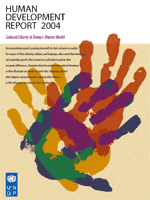Human deprivation can occur in many ways, some more remediable than others. The human development approach has been extensively used in the development literature (including earlier Human Development Reports) to analyze several prominent sources of affliction, ranging from illiteracy and a lack of health care to unemployment and indigence. In this year’s Report there is a substantial expansion of coverage and reach focusing in particular on the importance of cultural liberty and on the personal and social loss that can result from its dearth.
This refocusing does not abandon the basic commitments of the human development approach. The underlying motivation continues to be to search for ways of enhancing people’s lives and the freedoms they can enjoy. Denial of cultural liberty can generate significant deprivations, impoverishing human lives and excluding people from the cultural connections they have reason to seek. So the human development perspective can be extended to accommodate the importance of cultural liberty.
The cultural dimensions of human development require careful attention for three reasons. First, cultural liberty is an important aspect of human freedom, central to the capability of people to live as they would like and to have the opportunity to choose from the options they have—or can have. The advance of cultural liberty must be a central aspect of human development, and it requires us to go beyond social, political and economic opportunities, since by themselves they do not guarantee cultural liberty.
Second, even though there has been much discussion in recent years about culture and civilization, the focus has been less on cultural liberty and more on recognizing—even celebrating—cultural conservatism. The human development approach has something to offer in clarifying the importance of human freedom in cultural spheres. Rather than glorify unreasoned endorsement of inherited traditions, or warn the world about the alleged inevitability of clashes of civilizations, the human development perspective demands that attention go to the importance of freedom in cultural spheres (as in others), and to the ways of defending and expanding the cultural freedoms that people can enjoy. The critical issue is not just the significance of traditional culture—it is the far-reaching importance of cultural choices and freedoms.
Third, cultural liberty is important not only in the cultural sphere, but in the successes and failures in social, political and economic spheres. The different dimensions of human life have strong interrelations. Even poverty, a central economic idea, cannot be adequately understood without bringing in cultural considerations. Indeed, the close link between cultural deprivation and economic poverty was noted by no less an economist than Adam Smith, whose works have, as it happens, illuminated the relevance of human development.
Smith argued not only that poverty takes the gross shape of hunger and physical deprivation, but that it can also arise in the difficulties that some groups experience in taking part in the social and cultural life of the community. In particular, the analysis of poverty and the diagnosis of what commodities count as “necessaries” cannot be independent (Smith argued) of the demands of local culture. As he wrote: “By necessaries I understand not only the commodities which are indispensably necessary for the support of life, but whatever the custom of the country renders it indecent for creditable people, even the lowest order, to be without....Custom has rendered leather shoes a necessary of life in England. The poorest creditable person of either sex would be ashamed to appear in public without them.”1
To View The Full Report as a PDF File (2.98 MB)







